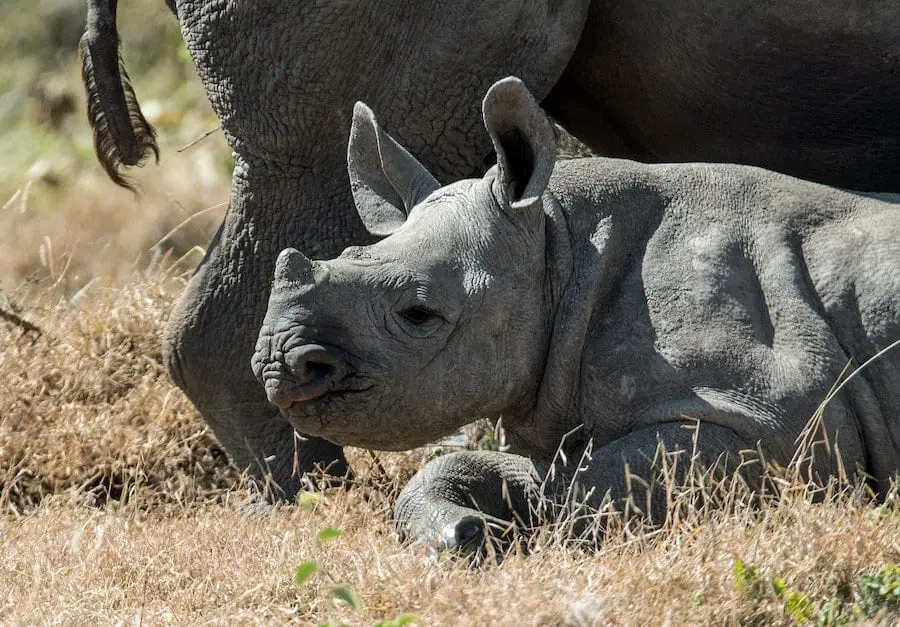

Researchers don’t technically know how much of that time is spent sleeping, as it’s believed that giant armadillos spend a significant amount of time in their burrows feeding as well. Instead, these solitary creatures will create burrows where they’ll hide for 16 to 18 hours at a time. The carapace that giant armadillos come rolled up in can protect them from a lot of natural threats, but they still prefer to spend most of their time in hiding despite that extra layer of armor. #7 Animal That Sleeps A Lot: Giant Armadillo - 16 to 18 Hours of Sleep a Day During the mornings and evenings, giant armadillos forage for food, then sleep the rest of the day away.

Little brown bats play an important role in maintaining insect populations, and you can learn plenty more about them here. They also hibernate through the length of the winter. As a result, these bats don’t just sleep for most of the day. The typical little brown bat needs to eat half their body weight each night to stay properly nourished, and mothers can end up eating more than their entire body weight during the period of a single night’s hunt. They’re fortunate to get that much energy. The little brown bat actively hunts for a few hours after dusk, but then it typically retreats back to its roost to return to its slumber. But the fact of the matter is that they aren’t that much more alert after night falls. #8 Animal That Sleeps A Lot: Little Brown Bat - Up to 20 Hours of Sleep a Day Little Brown Bats sleep for an average of 20 hours per day to conserve energy.īats are nocturnal, so it’s unlikely that you’ll see them awake during the day. Sloths may sleep less than you think, but it’s not the only unexpected fact about their lives. With food readily available and predators largely absent, sloths rarely even have a reason to leave their canopies.

Their unique bodies allow them to dangle from tree branches, and they end up doing most of their activities while hanging - that includes giving birth and even mating in addition to sleeping and eating. Part of the perception that the sloth is lazy comes down to this adorable critter’s habits. But while sloths in captivity have been witnessed sleeping up to 20 hours a day, research shows sloths in the wild sleeping for 10 hours a night or less. Sloths are creatures synonymous with laziness in the popular imagination, and there’s a lot of truth to the claim. #9 Animal That Sleeps A Lot: Sloth - 10 to 20 Hours of Sleep a Day Captive sloths typically sleep much longer than wild sloths, who typically do not rest for more than 10 hours. You can read more about the koala, Australia’s cuddliest and laziest marsupial, here. Not only are they capable of eating an entire kilogram of eucalyptus leaves in a day, but they also store leaves inside their cheeks so they can snack mid-nap. But during the four to five hours that koala bears are awake, they’re absolutely voracious. The high branches of trees offer koalas protection from predators and a practically endless supply of eucalyptus leaves - but part of the reason there’s so little competition is that these leaves contain almost no nutritional value. #10 Animal That Sleeps A Lot: Koala - 18 to 22 Hours of Sleep a Day Koalas are mostly nocturnal, sleeping long hours to give their bodies the time and energy to digest food.Īustralia’s adorable tree-climbing marsupials can blame a poor diet for their chronic case of sleepiness.
#Animals that dont sleep full#
These lazy animals might make you feel better about yourself and remind you that it’s okay to get a full night’s sleep. Instead, the sleepiest animals in the world can be ranked by how many hours they’ll sleep in an average day. The torpor of hibernation is fundamentally different from traditional sleep, and that excludes creatures like many species of bear from our list. In extreme cases, hibernation allows animals to store up food and conserve it for months at a time. Sleep offers a way to recuperate from the day and rebuild the energy that creatures spend their waking days exhausting, but it also offers a way to conserve energy. The average human being needs 7 to 9 hours of sleep a night to function properly, but that’s not the case for all of our brethren out in the wild.


 0 kommentar(er)
0 kommentar(er)
